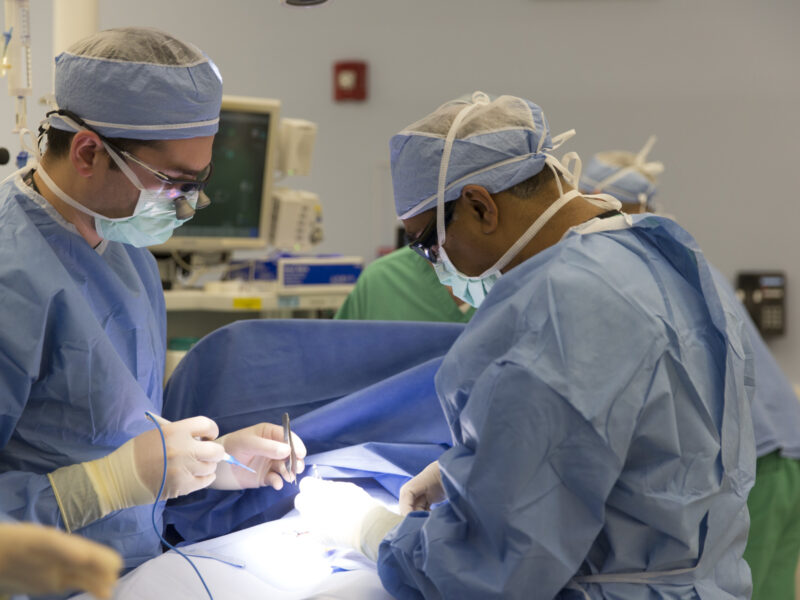In Defense Against Peritonitis, Antimicrobial Peptides May Help on Multiple Fronts
In Defense Against Peritonitis, Antimicrobial Peptides May Help on Multiple Fronts https://pediatricsnationwide.org/wp-content/themes/corpus/images/empty/thumbnail.jpg 150 150 Kevin Mayhood Kevin Mayhood https://secure.gravatar.com/avatar/bd57a8b155725b653da0c499ae1bf402?s=96&d=mm&r=g- October 08, 2019
- Kevin Mayhood
Study suggests AMPs have potential as biomarkers for peritonitis, risk stratification and treatment.
Antimicrobial peptides (AMPs) in the Ribonuclease A Superfamily exhibit distinct patterns when children and adults undergoing chronic peritoneal dialysis (PD) suffer from peritonitis, researchers have found.
The findings, published in Scientific Reports, suggest that AMPs in peritoneal fluid are potentially useful as biomarkers to diagnose peritonitis, and they may provide a means to treat or prevent infections and to risk-stratify patients in the future.
The researchers also found that cells in the omentum (a layer of tissue that surrounds other abdominal organs) are expressing the AMPs. The discovery has brought up questions about the
relation of the organ to the immune system and the risk to develop peritonitis, especially given that the omentum is often partially or fully removed in children undergoing PD to prevent mechanical complications.
Despite improvements in PD techniques during the last decade, peritonitis remains the most common reason for hospitalization, conversion to hemodialysis and death among PD patients.
“Peritoneal dialysis is definitely the preferred technique…the alternative, hemodialysis, is very challenging in small children,” says Neha Pottanat, MD, a pediatric nephrologist at Riley Hospital
for Children at Indiana University Health. Dr. Pottanat led the study during her fellowship at Nationwide Children’s Hospital.
Children born with congenital kidney and urinary tract problems often need dialysis at a young age, in some cases to enable them to mature enough to receive a kidney transplant. For young children on PD, “you have two worries: they will die from cardiovascular disease or infection,” says Rose Ayoob, MD, associate professor of Clinical Nephrology at West Virginia University, former director of the dialysis unit at Nationwide Children’s and study co-author. “If you take one of those out of the equation, that’s a big plus for these kids.”
The research team looked to the body’s immune system to find alternatives to antibiotics, which carry side effects and have limited effect against biofilm-protected infections that commonly occur in PD patients. In the peritoneal fluid of children and adults undergoing chronic PD, the team found the level of the AMP RNase 3 increased 55-fold, RNase 7 increased three-fold and RNase 6 remained unchanged during peritonitis.
The large increase in RNase 3 in all of 22 patients in the study holds promise for using the peptide as a peritonitis biomarker, says Brian Becknell, MD, PhD, pediatric nephrologist and principal investigator in the Center for Clinical and Translational Research in the Abigail Wexner Research Institute at Nationwide Children’s.
The study also indicates the potential for augmenting the defenses to prevent infections from occurring, Dr. Becknell says. “These particular AMPs have been shown to disperse biofilms or kill bacteria within biofilms.”
A larger study is needed to fully flesh out these AMP patterns, the researchers say, and determine whether patterns can indicate differences in peritonitis susceptibility among patients, types of peritonitis, or genetic polymorphisms of AMPs associated with risk.
Reference:
Pottanat ND, Brook AC, Bartosova M, Cortado H, Gupta S, Li B, Jackson AR, Vonau M, Cohen S, Ferrara M, Ching CB, Spencer JD, Brauner A, Fraser DJ, Schmitt CP, Eberl M, Ayoob R, Becknell B. Analysis of the Ribonuclease A Superfamily of antimicrobial peptides in patients undergoing chronic peritoneal dialysis. Scientific Reports. 2019 May 23;9(1):7753.
About the author
-
Kevin Mayhoodhttps://pediatricsnationwide.org/author/kevin-mayhood/
-
Kevin Mayhoodhttps://pediatricsnationwide.org/author/kevin-mayhood/April 25, 2015
-
Kevin Mayhoodhttps://pediatricsnationwide.org/author/kevin-mayhood/April 25, 2015
-
Kevin Mayhoodhttps://pediatricsnationwide.org/author/kevin-mayhood/April 25, 2015
- Posted In:
- In Brief







